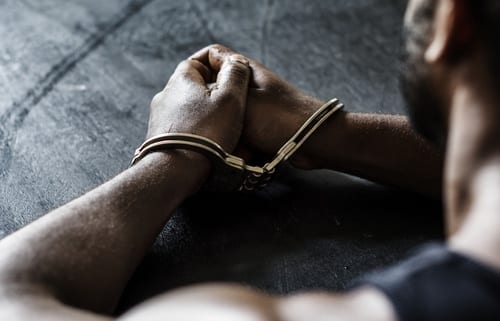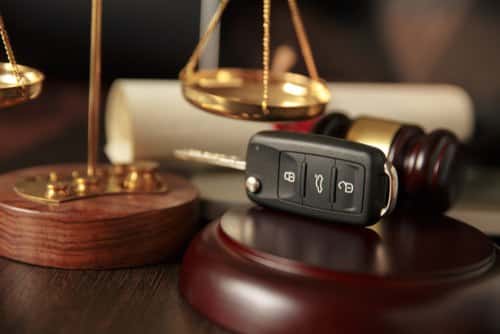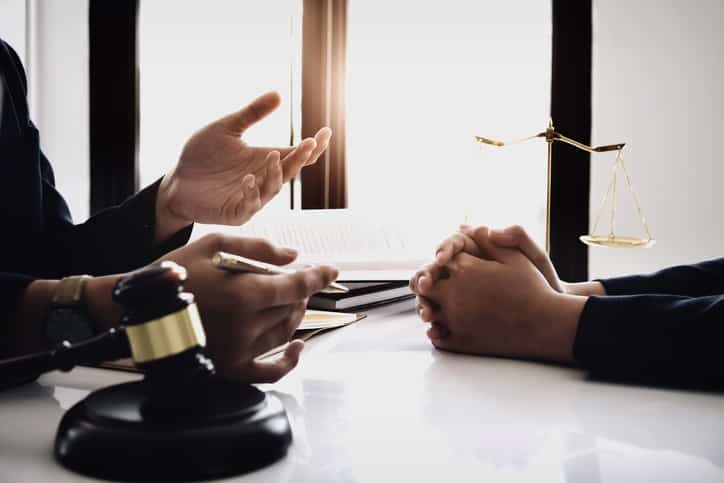
What are Your Constitutional Rights After an Arrest in South Carolina?
When you get arrested in South Carolina, the U.S. Constitution affords you a number of fundamental protections. Many of the Constitution’s protections apply prior to arrest as well. If you have been arrested for any alleged criminal offense in South Carolina, you need to understand how the Constitution protects you so that you can make informed decisions about your defense.
The U.S. Constitution Applies to State Criminal Cases Under the 14th Amendment
Although the Constitution is a federal document, its protections apply in federal and state criminal cases. This is due to the “Equal Protection Clause” in the 14th Amendment, which states:
“No state shall make or enforce any law which shall abridge the privileges or immunities of citizens of the United States; nor shall any state deprive any person of life, liberty, or property, without due process of law; nor deny to any person within its jurisdiction the equal protection of the laws.”
In short, the 14th Amendment prohibits states from enacting laws that interfere with your rights under the various other provisions of the Constitution. If constitutional protection applies at the federal level, it applies at the state level as well.
7 Key Constitutional Protections for Criminal Suspects and Defendants in South Carolina
So, what protections are available to criminal suspects and defendants in South Carolina based on the Equal Protection Clause? While the list is long, some of the most important constitutional protections in criminal cases include:
1. Fourth Amendment Protection Against Unreasonable Searches and Seizures
Under the Fourth Amendment, all people are entitled to be “secure . . . against unreasonable searches and seizures.” This protection has been interpreted to require the police to have “reasonable suspicion” in order to conduct a stop and to require “probable cause” before the police can make an arrest. It also requires the police to obtain a warrant based on probable cause prior to conducting a search or seizure unless the circumstances justify warrantless action.
2. Fifth Amendment Protection Against Self-Incrimination
The Fifth Amendment states that no person “shall be compelled in any criminal case to be a witness against himself.” This is what is commonly known as the privilege against self-incrimination. While the police can require you to identify yourself during a stop or arrest, they cannot require you to say anything that can be used against you in court. The privilege against self-incrimination is among the various protections incorporated into the Miranda warning, which the police must provide prior to questioning a suspect in custody.
3. Fifth Amendment Protection Against Double Jeopardy
The Fifth Amendment is also the source of the protection against double jeopardy. While it is possible to face prosecution twice in the event of a mistrial, if you are acquitted of a crime, you cannot be prosecuted again for the same charge based on the same underlying events.
4. Sixth Amendment Protection Against Surprise Charges and Evidence
As a criminal defendant in South Carolina, you have the right to be notified of the charges against you, and you are entitled to be made aware of the evidence the prosecution intends to use against you at trial. If prosecutors present surprise evidence at trial, this may constitute a violation of your Sixth Amendment rights.
5. Sixth Amendment Right to Assistance of Counsel
Perhaps the single-most-important protection afforded to criminal defendants is the right to be represented by an attorney. The Sixth Amendment states: “In all criminal prosecutions, the accused shall enjoy the right . . . to have the assistance of counsel for his [or her] defense.” Once you have been accused of a crime, you are entitled to legal representation during police interrogations, during court proceedings, and in private.
6. Sixth Amendment Right to a Speedy and Public Trial
The Sixth Amendment also entitles all criminal defendants to a “speedy and public trial.” While this does not mean that you must be tried immediately (nor do you want to face an immediate trial before you have the opportunity to build a defense), if your trial is unreasonably delayed to your detriment, then you may have grounds to assert a Sixth Amendment violation.
7. Article 1, Section 10 Prohibition on Ex Post Facto Laws
An ex post facto law is one that imposes criminal penalties for an act that was not illegal at the time it was committed. For example, if you sold a drug that was not illegal when you sold it but then South Carolina enacted a law criminalizing the drug, you could not be prosecuted under the new law. While this is a relatively straightforward example, some cases are far more complex, and ex post facto law enforcement can be an issue under a variety of different circumstances.
Asserting Your Constitutional Rights During Your South Carolina Criminal Case
What if the police or prosecutors violated your constitutional rights? For example, if the police stopped you without probable cause or failed to read your Miranda rights before conducting custodial interrogation, what does this mean for your criminal case?
While each case requires its own unique analysis, the general rule is this: If the government obtained evidence in violation of your constitutional rights, then this evidence cannot be used against you.
This is true not only with regard to any evidence obtained directly as a result of the violation (i.e. your confession in police custody or evidence seized during a warrantless search) but also for any additional evidence obtained using unconstitutionally-obtained evidence. For example, if the police illegally searched you and found a key to a safe or storage locker, then any evidence collected from the safe or storage locker may be legally inadmissible. If the government’s evidence is not admissible in court, then the prosecutors won’t be able to prove your guilt beyond a reasonable doubt.
Speak with Criminal Lawyers in Rock Hill, SC
If you are facing a criminal charge in South Carolina, it is important that you speak with a defense lawyer as soon as possible. To request a confidential initial consultation with one of our Rock Hill, SC criminal lawyers, call us at 803-328-8822 or tell us how to reach you online now.





